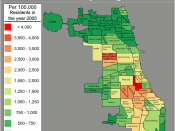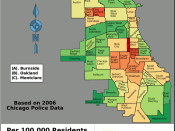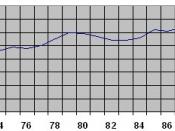Western society is fascinated with crime and justice. From films, books, newspapers, magazines, television broadcasts, to everyday conversations, we are constantly engaging in crime "talk". The mass media play an important role in the construction of criminality and public knowledge about crime as Surette's research (1996) reveals. However, does coverage of sensationalistic and violent crime also create fear among the general public? I shall argue that the media play a substantial role in determining the amount of fear of crime that people hold. This comes from the fact that the media extensively and disproportionately cover crime stories. This leads people to believe that there is more crime than there actually is, and believing that a great amount of crime exists in society leads people to fear. I shall first take a closer look at the culture of fear. Then, to support my argument I shall take into consideration a variety of factors such as locality, disproportion and sensationalism.
Finally I will investigate the impact of such process in race/ethnic crime reporting, taking the recent French Riot as example.
Fear of crime, as a phenomenon, is widespread in Britain and most Western societies. Many people see crime as a major social issue and report feelings of being unsafe in the streets, particularly in inner city areas (Mawby & Walklate, 1994). Zedner (1997) argues that people's fears of crime far exceed their chances of being a victim of crime, leading to suggestions that the fear of crime itself is a problem and in general that worries about crime are irrational. Having being unable to clearly connect fear to crime rates at either macro or micro levels, some researchers (Garofalo and Laub, 1979) argue that fear of crime takes on additional properties and becomes more than simple fear, being instead associated with a...



Fabulous
Great essay and its good to see extensive use of resources as detailed in your bibliography. However, you need to stop using I because this is supposed to be an essay.
0 out of 0 people found this comment useful.